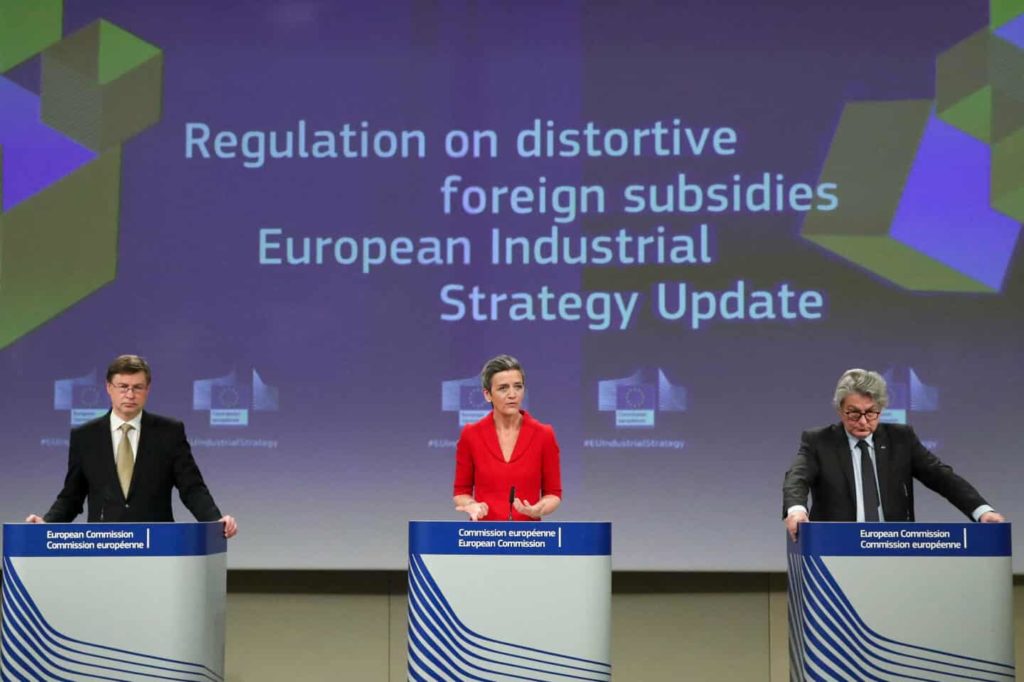
The European Commission has presented an updated industrial strategy that aims to reduce dependence on China, Vietnam, and other third countries for critically important products. According to Danish politician and Vice President of the European Commission Margrethe Vestager, the strategy must ensure that companies in the EU are prepared for the digital and green transition, media JydskeVestkysten reports.
The EU Commission has analyzed over 5000 imported products. Of this, according to EU Commissioner Valdis Dombrovskis, the EU is “very dependent” on 137 products, mainly from China, Vietnam, and Brazil. The analysis indicates that the EU must be more independent in six strategic areas including medicines and raw materials, among other things.
The analysis has also shown that by focusing on batteries, which are central to the EU’s green transition, it has been successful in reducing dependence. “The point is to find the way and have the ambition that companies in the EU must take the lead in the green and digital transition. The internal market is crucial, Margrethe Vestager says.
Among other things, dependence must be reduced by enabling EU countries to pool resources for important projects of common European interest (IPCEI) in strategically important areas. This has already happened in terms of batteries but it must also apply to, for example, cloud technologies, medicines, and so-called semiconductors used in electronics.
The proposal has been debated for a long time, and large member states such as Germany and France have pushed for a more protectionist line in the EU to be able to catch up with China.
According to the Danish Chamber of Commerce, the result is better than feared and EU and international chief Lasse Hamilton Heidemann sees “fine pace” in the strategy.
“We are particularly pleased with the strong focus on the internal market, as the framework condition that will help the EU further in international competition. It is also clear that protectionism is somewhat less prominent than we feared. The tone is more positive and less condescending to free trade,” he says.
